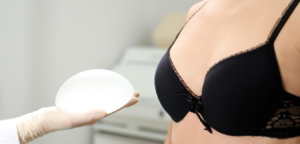
Le 2 juillet 2024
If you are considering breast enlargement surgery, also known as breast augmentation, in Turkey, there are a few important factors to keep in mind:
Research and Planning
- Choose a Reputable Clinic: Look for clinics and surgeons with strong reputations and positive reviews. Check for certifications and memberships in professional organizations, such as the Turkish Society of Plastic Reconstructive and Aesthetic Surgery.
- Consultations: Schedule consultations to discuss your goals, expectations, and any concerns you may have. A good surgeon will provide detailed information and answer all your questions.
- Cost: While Turkey is known for offering more affordable medical procedures compared to many Western countries, ensure you understand all costs involved, including the surgery, anesthesia, aftercare, and any potential follow-up visits.
- Travel and Accommodation: Plan your travel and accommodation arrangements. Some clinics offer packages that include these services.
Procedure Details
- Types of Implants: There are different types of implants for breast augmentation in Turkey, such as saline and silicone. Discuss with your surgeon which type is best suited for you.
- Incision Options: The location of the incision can vary (e.g., under the breast, around the nipple, or in the armpit). Your surgeon will recommend the best option based on your body type and desired outcome.
- Recovery: Understand the recovery process, including any restrictions on activities and the expected timeline for returning to normal activities.
Safety and Risks
- Potential Complications: Be aware of potential risks and complications, such as infection, implant rupture, or capsular contracture. Discuss these with your surgeon.
- Emergency Plan: Have a plan in place in case of any complications during your stay in Turkey or after you return home.
Legal and Ethical Considerations
- Informed Consent: Make sure you fully understand the procedure, risks, and benefits before giving your consent.
- Ethical Practices: Ensure the clinic follows ethical practices and prioritizes patient safety and well-being.
Preparing for Surgery
- Medical Evaluation: Your surgeon will likely require a pre-operative medical evaluation to ensure you are in good health for surgery. This may include blood tests, a mammogram, or other diagnostic tests.
- Lifestyle Adjustments: You may need to make certain lifestyle adjustments before surgery, such as quitting smoking, avoiding certain medications, and maintaining a healthy diet.
Choosing the Right Surgeon
- Board Certification: Ensure your surgeon is board-certified in plastic surgery and has specific experience in breast augmentation.
- Portfolio: Review before-and-after photos of previous patients to assess the surgeon’s skill and aesthetic style.
- Patient Testimonials: Read reviews and testimonials from previous patients to get an idea of their experiences and satisfaction levels.
- Communication: Choose a surgeon who communicates clearly and makes you feel comfortable. You should feel confident in their ability to understand and meet your goals.
Traveling to Turkey for Surgery
- Visa and Travel Documents: Ensure you have all necessary travel documents, including a valid passport and any required visas.
- Language Barrier: While many medical professionals in Turkey speak English, consider hiring a translator if you are not comfortable with the language.
- Local Regulations: Familiarize yourself with local medical regulations and standards to ensure the clinic adheres to high-quality practices.
Financial Considerations
- Cost Breakdown: Understand the full cost of the procedure, including surgery, anesthesia, hospital fees, and aftercare. Some clinics offer all-inclusive packages.
- Insurance: Most cosmetic surgeries are not covered by insurance. Check with your provider to understand your coverage and any potential financial assistance options.
- Payment Plans: Some clinics offer financing options or payment plans to make the procedure more affordable.
Ethical Considerations
- Informed Consent: Make sure you receive comprehensive information about the procedure, including potential risks and benefits, before giving your consent.
- Patient Rights: Ensure the clinic respects patient rights and maintains high ethical standards in patient care and treatment.

Psychological Preparation
- Mental Health: Ensure you are in a good mental state and have realistic expectations about the outcomes of the surgery. Cosmetic surgery can enhance your appearance, but it should not be seen as a solution to deeper emotional or psychological issues.
- Support Network: Discuss your decision with close friends or family members who can provide emotional support and help you make an informed decision.
Preparing for Your Trip
- Packing Essentials:
- Comfortable clothing that is easy to put on and take off.
- Necessary medications and medical records.
- Travel documents, including your passport, visa, and any medical insurance information.
- Post-surgery care items such as special bras, pillows, and any prescribed medications.
- Travel Arrangements:
- Book your flights and accommodations well in advance.
- Arrange for transportation to and from the clinic.
- Plan for a companion to accompany you if possible, as having someone to assist you can be very helpful.
Communication with Your Surgeon
- Pre-Surgery Communication:
- Have a comprehensive discussion about your medical history, allergies, and any medications you are taking.
- Discuss your aesthetic goals and ensure you have a clear understanding of the expected outcomes.
- Confirm the details of the procedure, including the type of implants, incision site, and placement.
- Post-Surgery Communication:
- Ensure you have clear instructions for post-operative care and know how to contact your surgeon in case of any concerns or complications.
- Schedule follow-up appointments to monitor your recovery and address any issues that may arise.
Managing Expectations
- Realistic Goals: Understand that while breast augmentation can significantly enhance your appearance, it may not achieve absolute perfection. Set realistic goals and focus on overall improvement rather than perfection.
- Emotional Preparedness: Be prepared for the emotional ups and downs that can accompany surgery and recovery. It’s normal to experience a range of emotions, from excitement to anxiety.
Legal Considerations
- Contracts and Agreements: Carefully read and understand all contracts and agreements before signing. Ensure all aspects of the procedure, including costs, risks, and aftercare, are clearly outlined.
- Legal Recourse: Familiarize yourself with your legal rights and options in case of any disputes or complications. Knowing the legal landscape can provide peace of mind.
Cultural Sensitivity
- Respect Local Customs: Be aware of and respect local customs and cultural norms while in Turkey.
- Cultural Differences: Understand that medical practices and patient care may vary across cultures. Being open-minded and respectful can enhance your overall experience.
Additional Tips for a Smooth Experience
- Documentation: Keep all medical records, including pre-operative evaluations and post-operative care instructions, organized and accessible.
- Health Insurance: Although cosmetic surgery is typically not covered, consider travel insurance that includes medical coverage in case of unexpected complications.
- Post-Surgery Activities: Plan for a relaxing recovery period. Avoid scheduling strenuous activities or extensive travel immediately after the surgery.
Red Flags to Watch Out For
- Unrealistic Promises: Be cautious of clinics or surgeons who make unrealistic promises or guarantee perfect results.
- Lack of Transparency: Avoid clinics that are not transparent about costs, procedures, or potential risks.
- Pressure Tactics: Be wary of any clinic that pressures you to make a quick decision without giving you ample time to consider your options.
Resources and Support
- Online Communities: Join online forums and social media groups where you can connect with others who have undergone breast augmentation. These communities can provide support, share experiences, and offer valuable advice.
- Professional Organizations: Look for resources from professional organizations such as the Turkish Society of Plastic Reconstructive and Aesthetic Surgery or international bodies like the American Society of Plastic Surgeons. They often provide educational materials and directories of certified surgeons.
- Patient Advocacy Groups: Organizations that advocate for patient rights and safety can be a valuable resource for information and support.
During the Procedure
- Anesthesia: Breast augmentation surgery is typically performed under general anesthesia, meaning you will be asleep during the procedure.
- Surgery Duration: The surgery usually takes between 1 to 2 hours, depending on the complexity and specific techniques used.
- Implant Placement: Implants can be placed either under the breast tissue (subglandular) or under the chest muscle (submuscular). Your surgeon will recommend the best option based on your anatomy and desired outcome.
Immediate Post-Operative Care
- Recovery Room: After surgery, you will be taken to a recovery room where you will be closely monitored as you wake up from anesthesia.
- Initial Recovery: Most patients can go home the same day, but you will need someone to drive you and stay with you for at least the first 24 hours.
- Pain Management: Your surgeon will prescribe pain medication to help manage discomfort during the initial recovery period.
Long-Term Recovery
- Healing Process: Full recovery can take several weeks. You will need to wear a special support bra and avoid strenuous activities during this time.
- Follow-Up Visits: Regular follow-up visits with your surgeon are crucial to monitor your healing and address any concerns.
- Scarring: Incision scars will fade over time but may take several months to a year to fully mature.
Results and Expectations
- Final Outcome: While you will see immediate changes, the final results of your breast augmentation may not be fully visible until swelling has subsided and the implants have settled, which can take a few months.
- Realistic Expectations: It’s important to have realistic expectations and understand that while breast augmentation can enhance your appearance and boost your confidence, it may not achieve absolute perfection.
Long-Term Considerations
- Regular Monitoring: Schedule regular check-ups to monitor the condition of your implants and overall breast health. This is especially important as implants may need to be replaced or adjusted over time.
- Lifestyle Adjustments: Maintain a healthy lifestyle to support your overall well-being and the longevity of your breast implants. This includes proper nutrition, regular exercise, and avoiding habits that could negatively impact your health, such as smoking.
- Implant Longevity: Understand that breast implants are not lifetime devices. The average lifespan of breast implants is around 10-15 years, but this can vary. Stay informed about the condition of your implants and be prepared for potential future surgeries to replace or remove them.
- Breast Health: Continue to perform regular breast self-exams and schedule routine mammograms as recommended by your healthcare provider. Inform your radiologist about your implants, as special techniques may be needed for accurate imaging.
Emotional and Psychological Support
- Counseling: If you experience emotional or psychological challenges related to your surgery or body image, consider seeking support from a counselor or therapist. They can help you navigate any feelings of anxiety, depression, or body dysmorphia.
- Support Groups: Participate in support groups, either in person or online, where you can share your experiences and connect with others who have undergone similar procedures. This can provide a sense of community and reassurance.
Continuous Education
- Stay Informed: Keep yourself updated on advancements in breast augmentation techniques, implant technology, and post-operative care. This knowledge can help you make informed decisions about your health and any future procedures.
- Professional Advice: Regularly consult with medical professionals to ensure you are following the best practices for maintaining your implants and overall breast health.
Summary
Breast augmentation in Turkey can be a rewarding experience if approached with careful planning, thorough research, and a focus on safety and well-being. By following the steps outlined in this guide, you can enhance your chances of a successful outcome and enjoy the benefits of your enhanced appearance.

